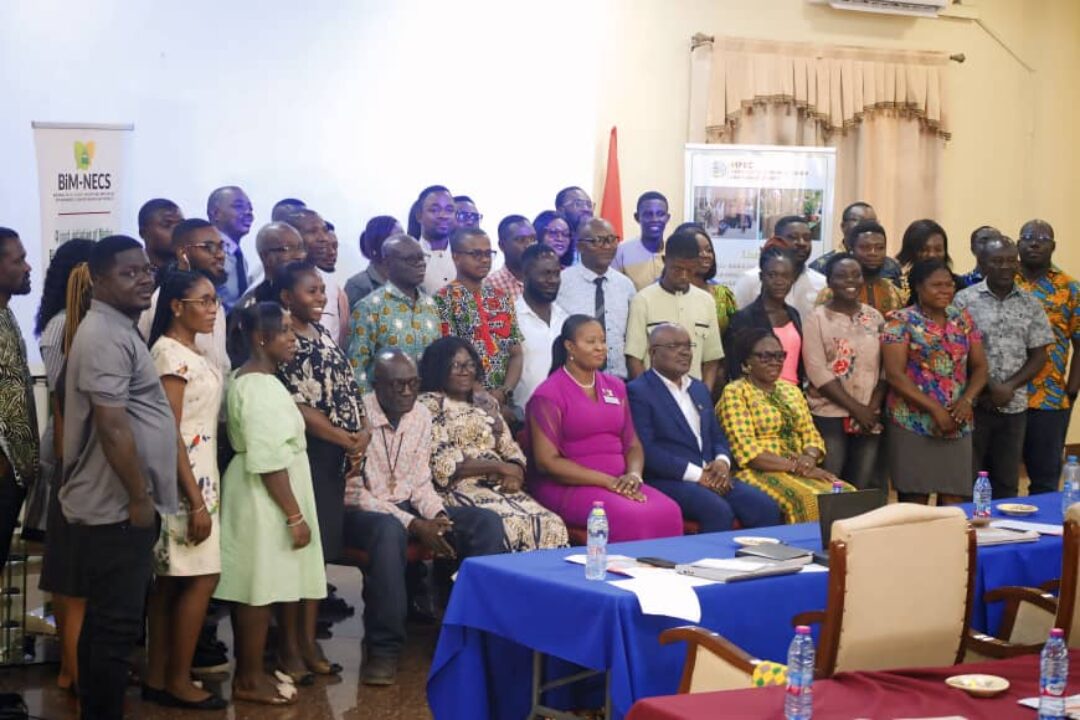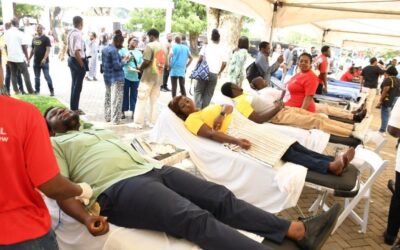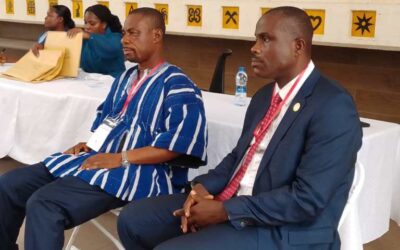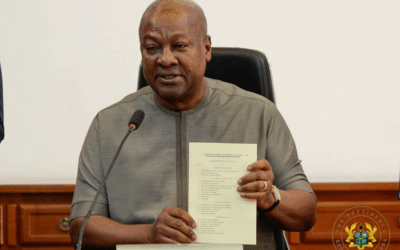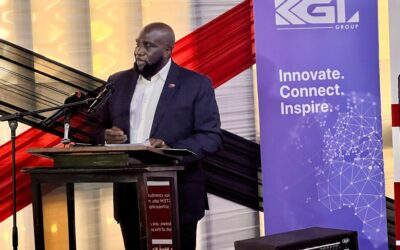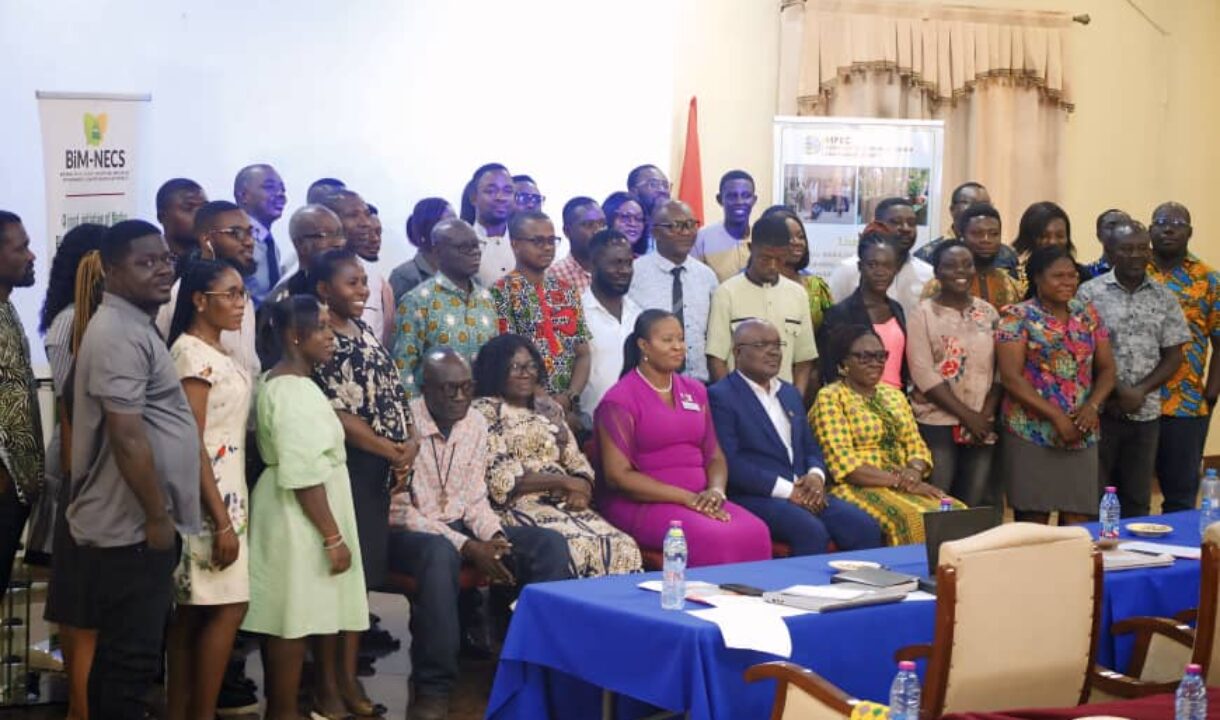By: Isaac Amoah/tntnewspapergh.com
The second biennial media forum on natural resources, environment, climate change and science (BIM-NECS FORUM 2) has been held successfully in the Ashanti Regional capital, Kumasi.
The forum, which was held on Tuesday, 3rd June 2025, at True Vine Hotel, was on the theme: “Ecosystem Restoration: The Politics, the Science, the Human and the Economy”.


It brought together key stakeholders from the Bono East, Bono, Ahafo and Ashanti regions to brainstorm the need to restore the ecosystem.
BIM-NECS FORUM is a joint initiative of Media Platform on Environment and Climate Change (MPC), the Afro-Sino Centre of International Relations (ASSCIR) and Steminist Foundation.
The goal is to contribute to the conversation about the importance of the media and information dissemination for the governance and management of NECS.
The key speaker, Professor (Mrs) Mercy Afua Adutwumwaa Denkyi, who is the Director of Quality Assurance and Academic Planning Directorate (QAAPD), University of Energy and Natural Resources (UNER), Sunyani, stated that healthy ecosystems attract tourists, which can be a substantial source of revenue for local economies.


Participants, speakers and the officials of the forum in a group photograph
According to her, ecosystem restoration, including afforestation and forest landscape restoration, has become crucial due to our damaging environmental actions. “All stakeholders must collaborate to support restoration projects, focusing on the interrelated dimensions of politics, science, humans, and economy,” she added.
Prof. Denkyi explained that restoration is a long-term commitment that cannot rely solely on donor funding, particularly in Africa, where projects often falter after funding has ended.
She, therefore, suggested that governments and agencies must institutionalise donor-funded projects within existing land-use institutions, such as the Forestry Commission and the Ministry of Food and Agriculture.
Humans are central to successful restoration initiatives. As highlighted by Mansourain et al. (2024), understanding human dimensions at every stage is essential for equitable restoration practices.
Transdisciplinary teams should design and implement projects integrating various scientific insights, including social sciences, to enhance efficacy, adding that there is a pressing need for a data centre to monitor ongoing restoration commitments and progress towards the Bonn Challenge and other 2030 targets.
“Key institutions like the Forestry Commission, academia, and the media must be actively involved to ensure inclusive partnerships that enhance communication and collaboration among researchers and environmental journalists,” she stressed.
The Chairperson for the event, who doubles as the Principal Project Manager of Proforest, in her statement, challenged media practitioners in the country to spark informed conversations which could impact the ecosystem positively.
In an address, the Executive Director of MPEC explained that the BIM-NECS Forum was conceived in 2023 as a platform for media practitioners in Ghana and other parts of Africa to come together to reflect on, debate and share experiences on their role in the governance of natural resources, environment, climate change and science (NECS).
She, therefore, called on the media not to be bystanders but to join all efforts to ensure an effective ecosystem restoration.
Mr. Kingsley E. Hope, the outgoing Ashanti Regional Chairman for the Ghana Journalists Association (GJA), commended the forum for the engagement.
According to him, the role of the media in ensuring ecosystem restoration cannot be overemphasised. Hence, he called for an effective environmental reportage with in-depth knowledge acquisition by media personnel.
The Ashanti GJA chairman, who is very passionate about issues that border on science and environmental reportage, indicated that the GJA, from the national level, is very committed to the ecosystem restoration…
Other speakers, including the Ashanti Regional Director of Environmental Protection Authority, Dr Jackson, and the participants were in one accord for an effective collaboration to ensure ecosystem restoration.


